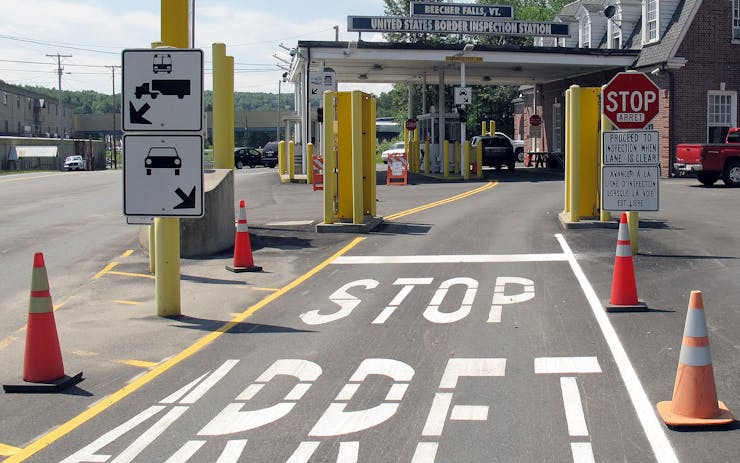With the legalization of recreational cannabis less than three months away, there remains a lot of uncertainty about how it will affect travel to the United States.
There are already reports of Canadians being turned away at the border and even receiving lifetime bans from the US because of ties to cannabis. Nonetheless, there isn’t widespread panic in the cannabis industry about a crackdown—at least not yet.
Media have reported that some Canadians in the cannabis industry have been turned away at the border and, in some cases, banned from entering the United States for life.
Adult-use cannabis is legal in nine US states; medical marijuana is legal in 30 states. But at the federal level, it is classified as a Schedule 1 drug—drugs that are illegal because they are viewed as addictive and having no medical use. Heroin and cocaine also fall into this category. The US government considers any past or current association with Schedule 1 drugs a federal crime.
The border falls under federal jurisdiction, so border agents have the right to ask travelers questions about drug use.
A number of media outlets have reported that some Canadians in the cannabis industry, ranging from dispensary workers to investors, have been turned away at the border and, in some cases, banned from entering the United States for life.
Several have reportedly contacted lawyers in the US, seeking legal waivers allowing them to enter. An immigration lawyer based in Washington state told The Star he hears from Canadians seeking waivers at least once or twice a week. 15 years ago, he received that many calls in a year. Obtaining a legal waiver, which is valid for between one and five years, can be a costly and time-consuming affair.Looking for Medical Cannabis in Canada?
Don’t Panic
Despite these incidents it may be premature to sound the alarm bell, say some industry insiders.
Canadian Will Stewart, vice-president of corporate communications for Hiku, which is licensed to produce cannabis through its subsidiary DOJA, travels to the US often and hasn’t encountered any problems. He hasn’t been asked any cannabis-related questions.
He says he doesn’t know of any associates who have been turned away from the border, either. “I’ve read a lot of articles about this potentially being a problem,” he told Leafly. “But I have yet to hear of anyone in the industry who has been refused entry to the US.”
Shop highly rated dispensaries near you
Showing you dispensaries nearTimothy Fair, a lawyer at a cannabis-focused firm in Vermont, also says he hasn’t heard of any cases of Canadians in the cannabis industry being turned away at the border.
And Don’t Lie
Fair, whose firm is in the city of Burlington, a cross-border shopping destination just 155 km (96 miles) from Montreal, told Leafly that any Canadian who is asked about ties to cannabis should decline to answer.
If asked about cannabis, you can decline to answer. You may not be allowed to cross that day, but lying to a border guard is a crime.
In that case, he or she would be denied entry and could be subjected to closer scrutiny on subsequent attempts to cross the border. That wouldn’t be an ideal scenario, he said, but it would be better than receiving a lifetime ban. “Whatever you do, don’t lie to the border guard,” he added. “That’s a crime.”
Public Safety Minister Ralph Goodale recently said the legalization of adult-use cannabis in October won’t lead to any changes in border policy on the part of the United States. Saunders predicts that, after October 17, there will be “a tidal wave” of cases in which Canadians connected to the industry encounter problems crossing into the United States.
Fair disagrees. He said a crackdown like that would be “absurd. By turning away Canadians connected to the industry, we would be shooting ourselves in the foot in many ways. We would be alienating an ally and neighbour, stopping people who come here to spend money and limiting the growth of an industry that could be worth billions in our own country.”
Absurd Is Not Currently an Operative Concept
But he adds that anything is possible. The administration of US President Donald Trump is nothing if not unpredictable. “At the federal level, we don’t have a coherent policy,” said Fair. “The various individuals in the Trump administration are doing their own thing and Trump himself just reacts to whatever is in front of him.”
“I hope this issue constitutes a temporary blip in American politics,” he added. “I hope cannabis will be a non-issue with a President who has an IQ over 40.”
The potential problems haven’t dampened the enthusiasm of those in Canada’s booming cannabis industry. Said Stewart: “I haven’t come across anyone, or heard of anyone, staying away from the industry because of this.”





